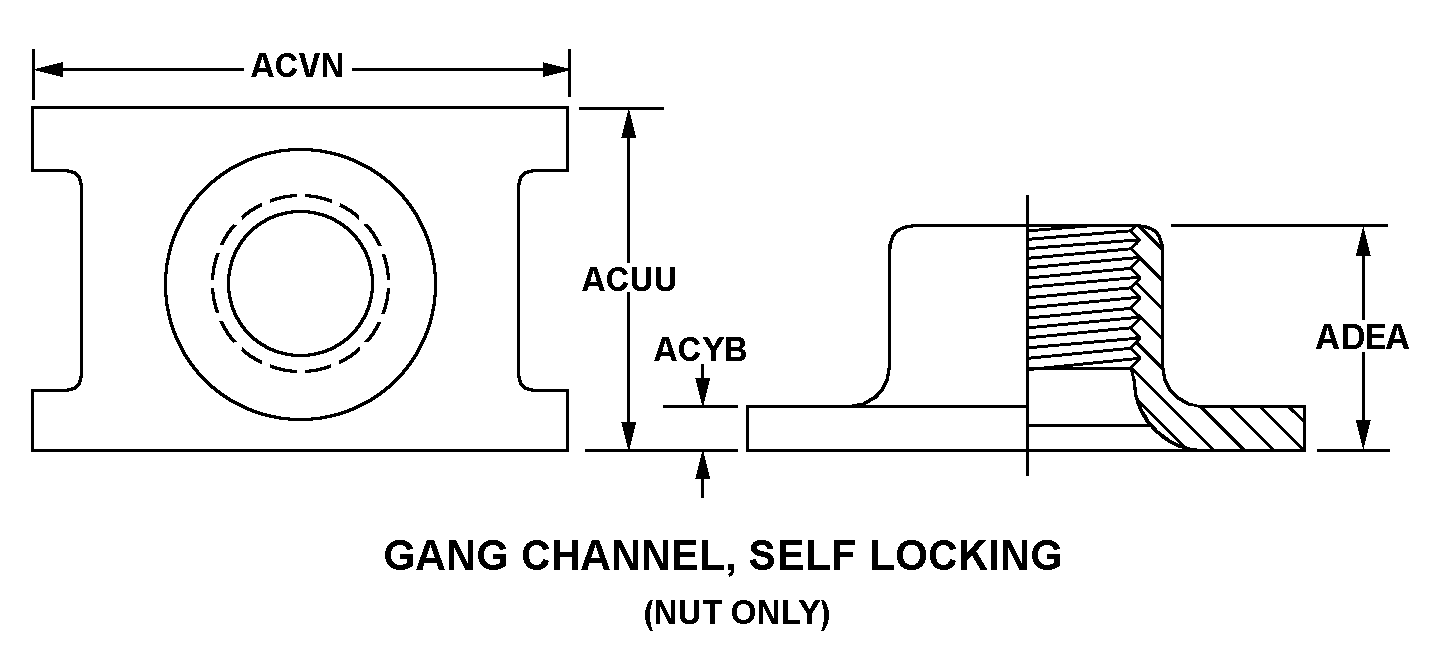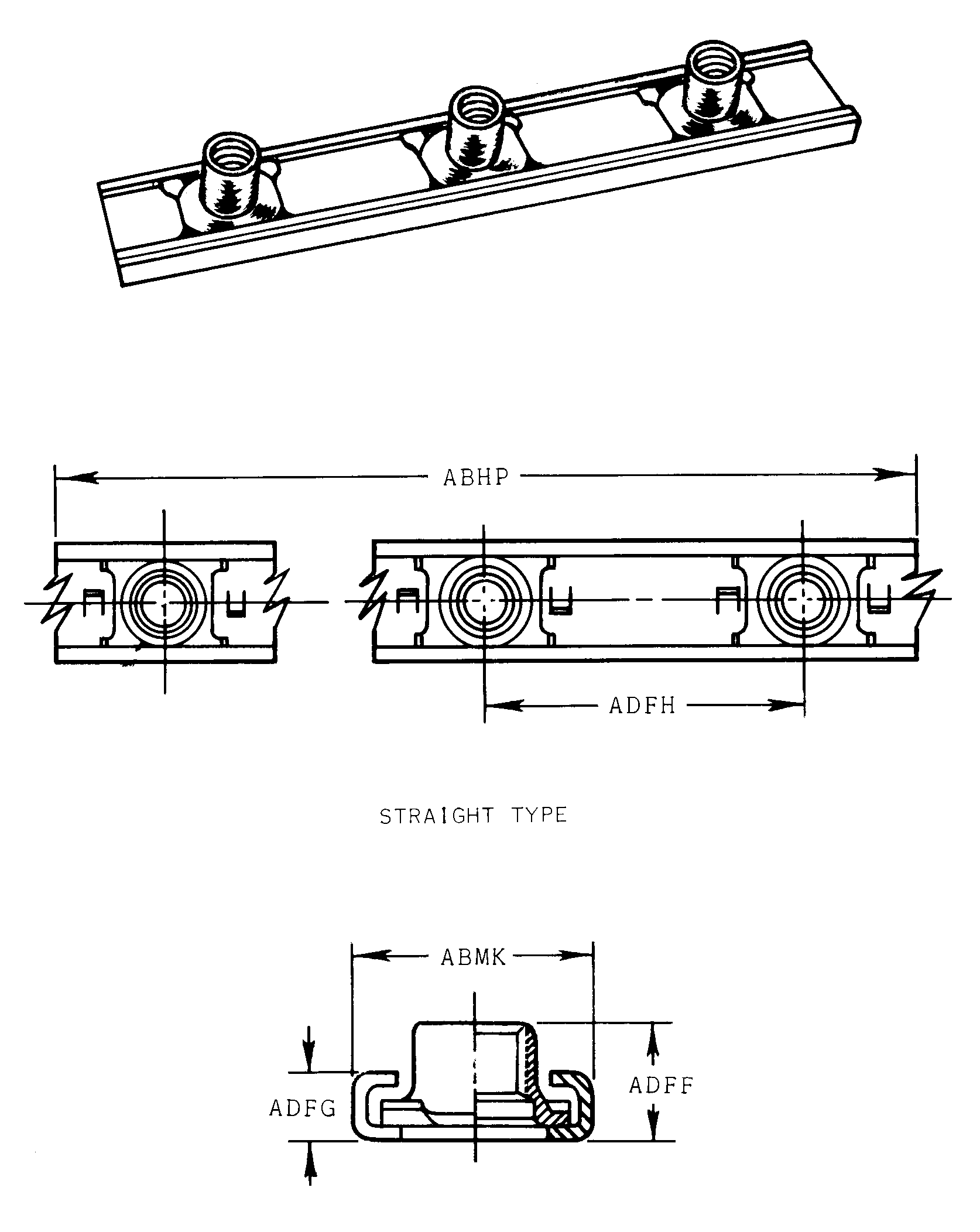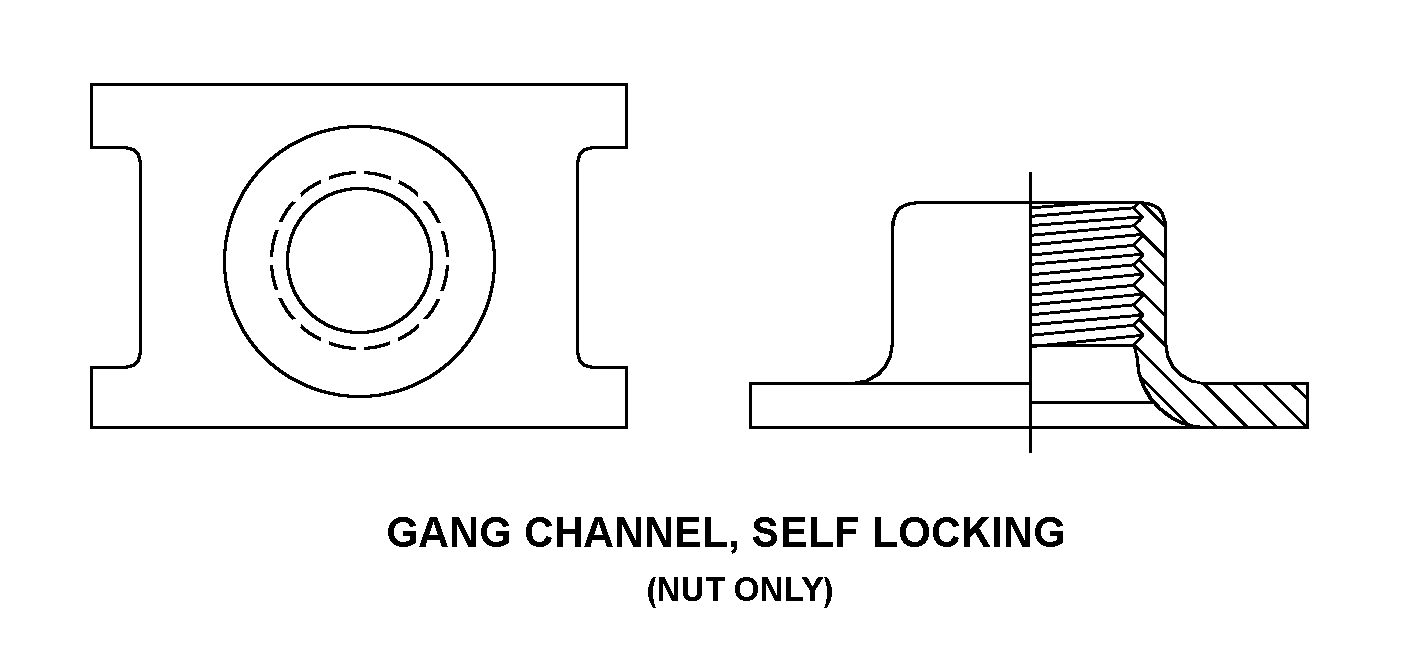5310015436771
Price Quote Get an up to date pricing and availability quote for this product. Order online or over the phone.
Quality Commitment
Serving our customers with quality and safety first.
- AS9120 Certified
- Audited supply chain
- ITAR Registered
- DDTC Registered
- HAZMAT Certified
- Customer service objectives
- Every product 100% inspected

5310-01-543-6771 Specification Set by the OEM (see RNCC code 3)
3b
RIGHT-Hand
prevailing torque all metal design
0.194in. nut
dry film lubricant
72.000in. ⁓72-1/64"
0.433in.
gang channel, self locking
straight type
0.312in.
0.203in.
1.000in.
0.125in. nut
350.0 deg fahrenheit
26
unf
floating nut
32
0.190in. ⁓13/64"
iron alloy 660 nut
AMS5525 assn std single material response nut or AMS5735 assn std single material response nut
anodize channel
IL-A-8625 mil spec 10th treatment response channel
76301-ST3-723 government standard
Cross Reference Parts Part numbers that meet the specification outlined on this page and set by the OEM
Identification Item Identification Guide (IIG) and Item Name Code (INC)



Definition Definition of approved item name (AIN): "NUT ASSEMBLY,SELF-LOCKING,GANG C"
An item composed of a specially designed channel and a series of nuts having integral self-locking features assembled in predetermined spacing.
5310-01-543-6771 Material Hazmat, Precious Metals, Criticality, Enviroment, and ESD
Indicates there is no data in the hmirs and the nsn is in a fsc not generally suspected of containing hazardous materials.
Item does not contain precious metal.
No known electrostatic discharge (esd) or electromagnetic interference (emi) sensitivity.
Represents items with no adp components
The item does not have a nuclear hardened feature or any other critical feature such as tolerance, fit restriction or application.
Identification Codes
HMIC: Hazardous Material Indicator Code. A one position code that identifies a hazardous item.
PMIC: Precious Metal Indicator Code. A one position code which identifies items that have precious metals as part of their content. precious metals are those metals generally considered to be uncommon, highly valuable, and relatively superior in certain properties such as resistance to corrosion and electrical conductivity.
ESD: Electrostatic Discharge. Indicates if an item is susceptible to electrostatic discharge or electromagnetic interference damage. electrostatic discharge damage occurs when an accumulation of static electricity generated by the relative motion or separation of materials is released to another item by direct contact. electromagnetic interference damage occurs when an item comes into proximity with an electrostatic or magnetic field.
ENAC: Enviromental Attribute Code. Identifies items with environmentally preferred characteristics.
CRITL: Criticality Indicator Code. Indicates an item is technically critical by tolerance, fit, application, nuclear hardness properties, or other characteristics.






